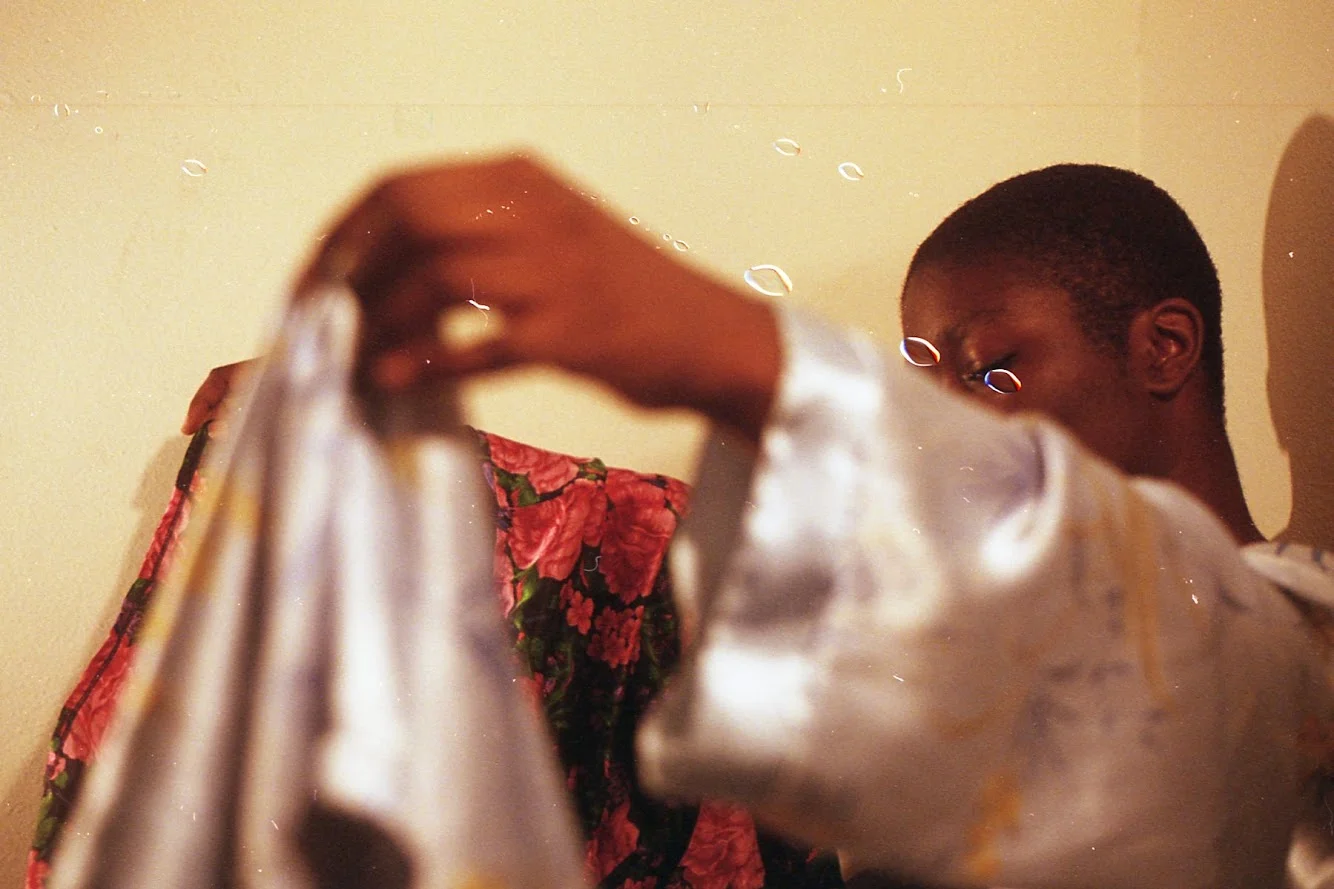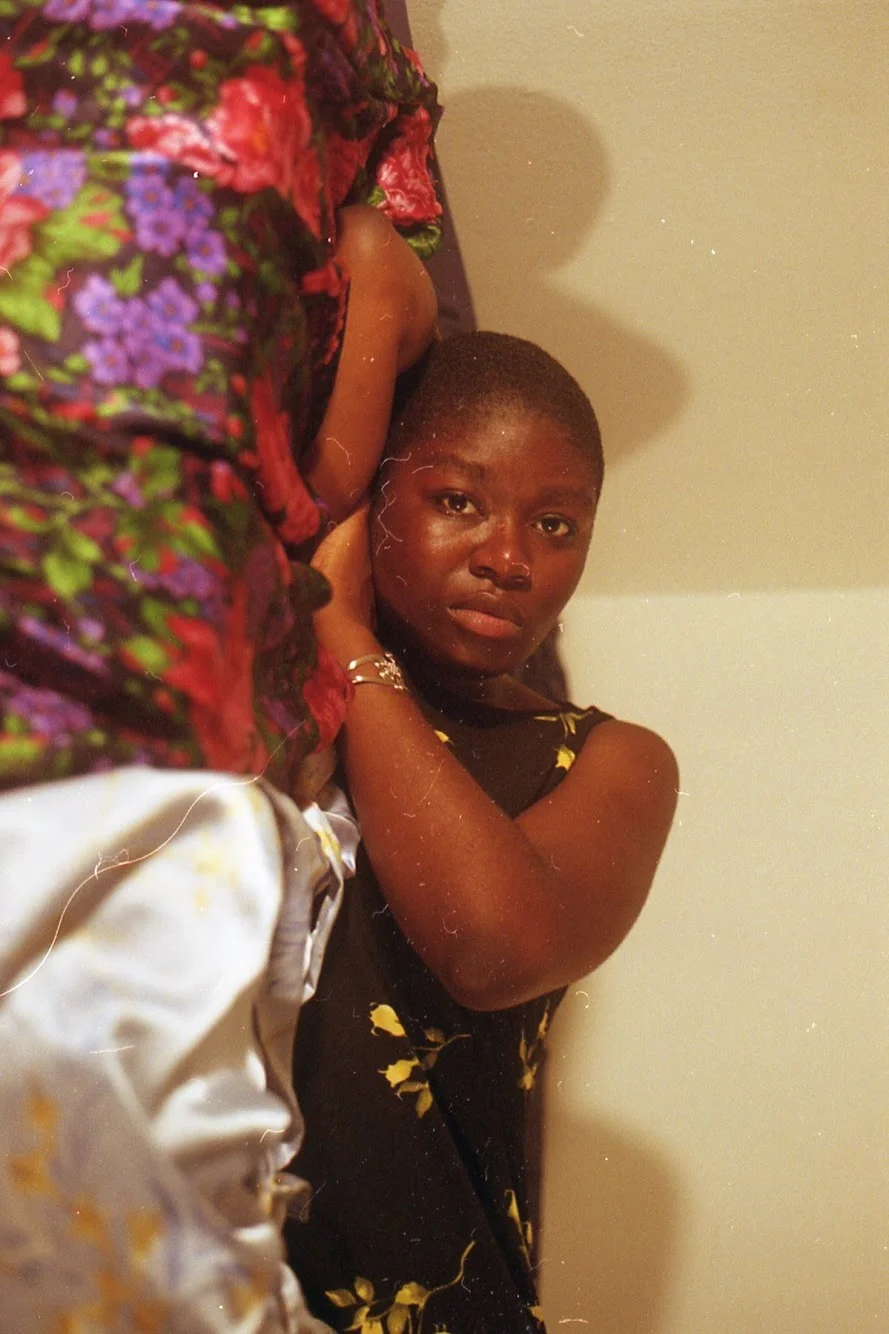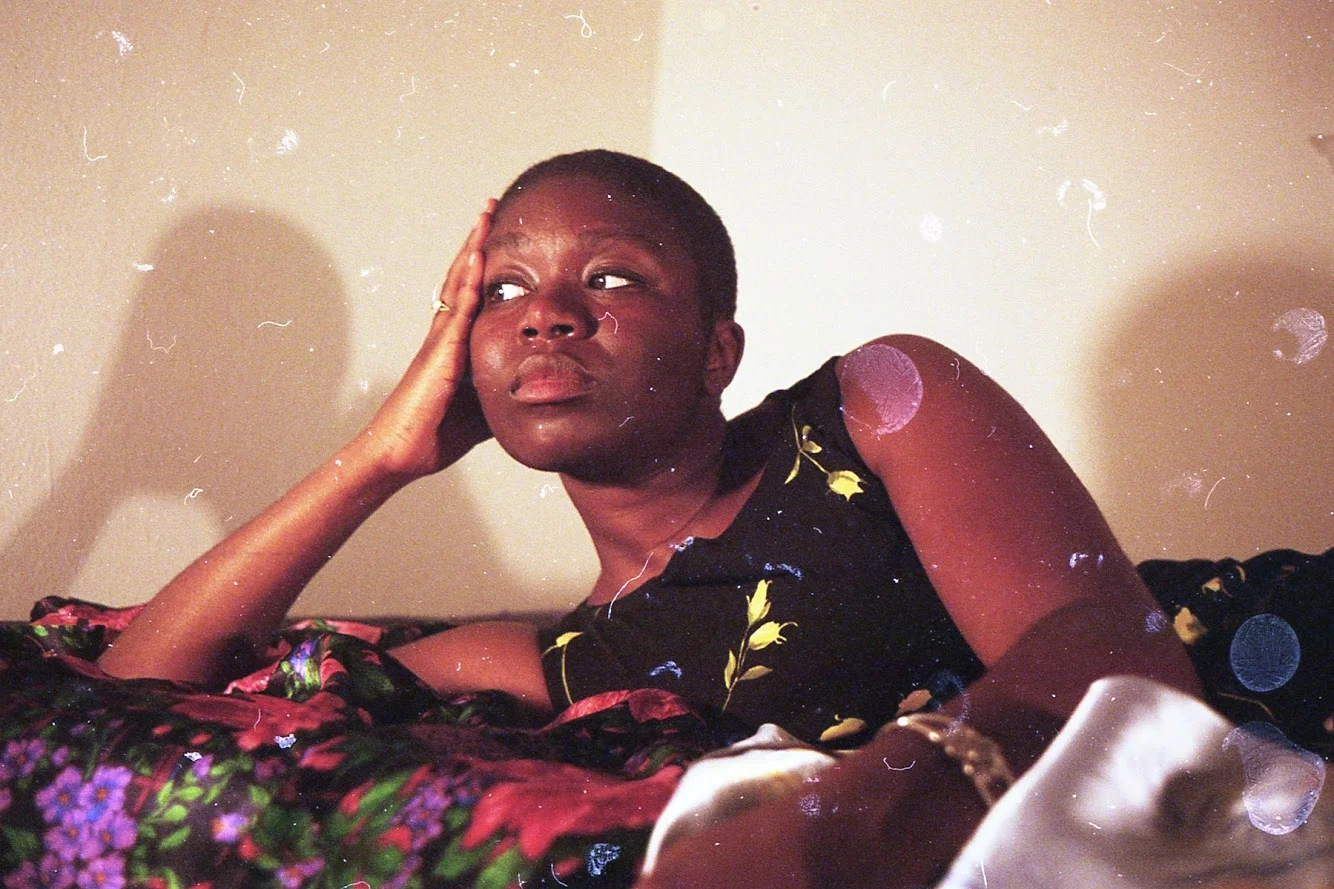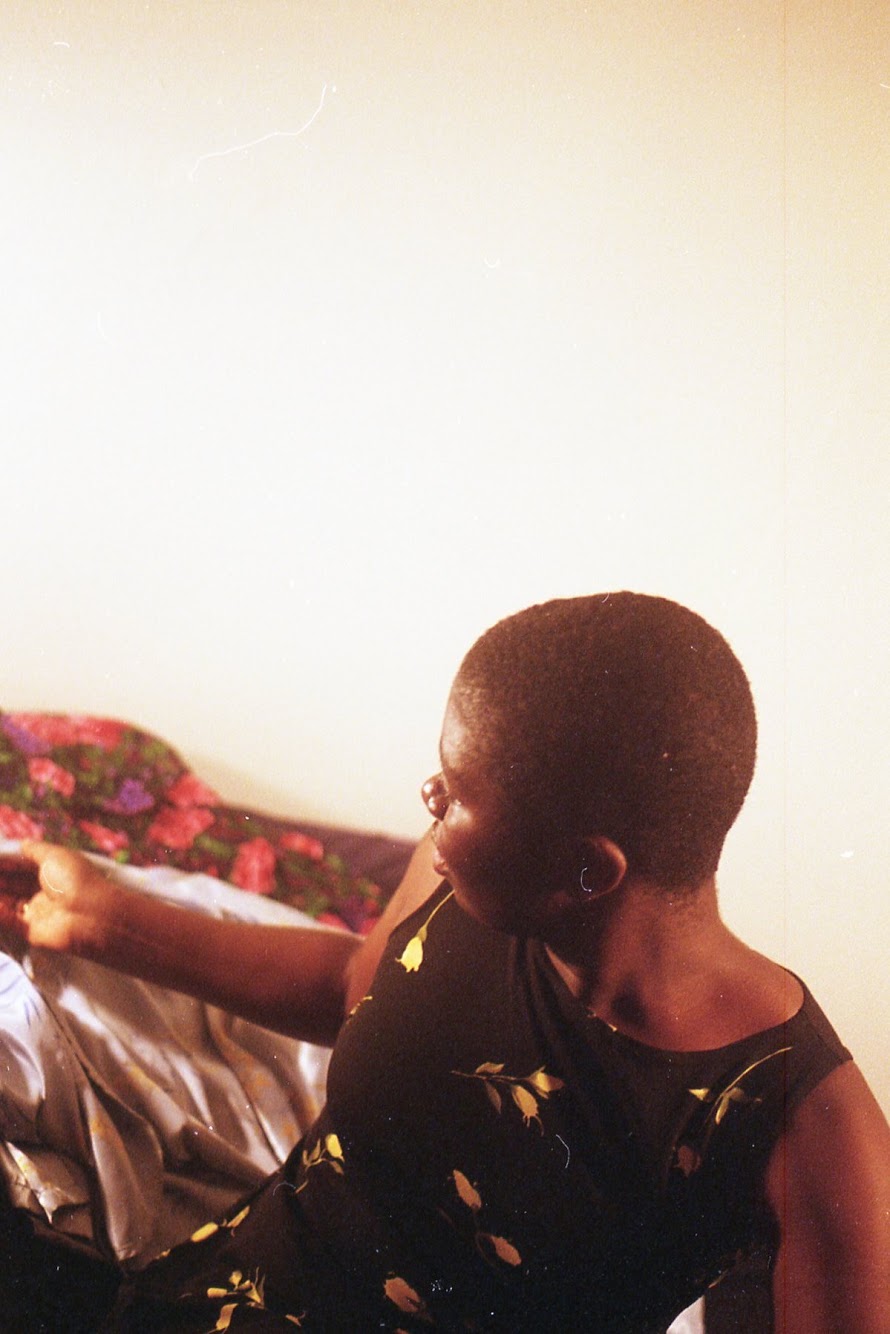SWIM TEAM: A Q&A with Christelle Bofale
Photos by John Bergin
by Anna White
Congolese-American artist Christelle Bofale’s EP Swim Team (Father/Daughter) was released in May, but it’s the perfect listen for a slow, hot summer day spent back-floating on any body of water. On the six-song debut, Bofale explores heartbreak and mental health over a bright sonic backdrop that wavers, shimmering like light patterns at the bottom of a pool.
Swim Team is hard to pin to a single genre—artful guitar riffs in “Origami Dreams” call to mind indie contemporaries like Soccer Mommy and Alex G, while less-straightforward numbers such as seven-minute-long “U Ochea” rely more heavily on Bofale’s soft, melodic vocals, which flow and dip in a manner more familiar to an early 2000’s pop ballad.
We spoke with Bofale about depression, skipping swim meets, and her experiences navigating expectations and preconceptions as a Black woman in indie.
Tell me about your new EP, Swim Team.
Swim Team is a project that came together kind of half on purpose, half by accident. the name is inspired by all my wonderful friends who have been with me throughout the time when I thought I was drowning in my emotions, both happy and sad ones. It’s an ode to the people in your life that you consider to be your “swim team”, and vulnerability — being ok with feeling deeply for a minute.
Have you ever been on a swim team?
Yes, I have, and part of me calling the album “swim team” was kind of to redeem myself as far as my swim team experience! I was on the swim team for a while in the sixth grade, and I went to all the practices, but I never went to a single meet. My parents were really busy, and they knew when all the practices were, but it was up to me to let them know when my meets were so they could make sure I was there If I didn’t tell them they wouldn’t know where to take me, and so I would always “forget”. Looking back, I don’t actually think I forgot, I think I just chickened out or got scared. So now it’s full circle. I’ve released something called “swim team”, and I feel a little better about it.
I love that! Do you have a favorite song on the EP?
I really love them all, but I would say honestly my favorite [song] to play is “Where to Go”, which is the last one. I think most people’s favorite is probably “Origami Dreams”, which I love, but I like “Where to Go” a lot — It’s so spacey, and kind of seems to just pull you in different directions. I love to play that one, and I always play it live.
Photos by John Bergin
What is “Where to Go” about?
“Where to Go” is about my experience with depression. At the time I was taking antidepressants and I was seeing both a therapist and a psychiatric nurse, and I felt like I was being told to just take these pills and things would be fine. That’s why I say, “swallow the pill and figure it out.” When I play that song people have asked me if I was talking about molly or something, but I’m talking about antidepressants! It’s about that feeling of being lost, and feeling like I’m doing all these things — I’m going to therapy, I’m taking my pills, what else is it that I need to do to feel better? Feeling a little helpless. That definitely inspired “Where to Go.”
You’re based in Austin — what was it like coming up in that scene?
At first, I didn’t have a band yet, I was just playing my songs solo. I was new to the scene and people knew who I was, but they didn’t know me as a musician, they just knew me as Christelle. At that point, it felt really daunting to try to enter the music scene, or at least the indie-rock one. There are a bunch of music scenes in Austin, but like that indie rock scene seemed really hard to crack because it’s such a white, boys club. I was like, “How can I break into this, how can I fit in?”
I started playing shows and it feels like my fears kind of ended up being, not pointless, but people slowly and surely started to accept me and my music. I’ve heard from people in town, “It’s cool to hear something different coming out of Austin,” and while it was kind of a hard nut to crack, I think people are welcoming it with open arms because I think this is a sound Austin really hasn’t seen and adding the fact that it’s from a woman of color, a Black woman, is great.
What genre would you place yourself in?
It’s weird because I feel like my music fits into so many. It has elements of R&B, it has elements of indie rock, it has elements of jazz, folk, and so it’s hard to say what genre it really is. I’ve just been saying indie, indie-rock, alternative. I don’t mind R&B at all, just sometimes there’s this predetermined idea of what kind of music a black woman is going to make, like, oh, she’s either making jazz or R&B or maybe hip hop. I’ve been trying to break out of that.
“Be persistent. Work with a community.”
What has your experience been like as a Black woman playing indie music?
It’s been really cool! I know people that have been interested in making indie rock music, but it’s this thing that’s not really seen as Black enough or as kind of a white thing, because we’re taught, oh, rock is for white boys. Which is interesting, I feel like, because rock and folk and country were kind of started by Black people, so it’s kind of a reclaiming of guitar playing.
There are so many black woman guitarists that I can draw inspiration from, because I’m definitely not the first or the last, but as far as my generation, it’s me, Vagabon … It’s cool to be a part of that. I don’t know if it’s a movement, but I guess I’ll call it a movement for the time being. And it’s been cool meeting other people locally. I’ve been meeting some black local artists who make indie rock or alternative music, and we’ve been slowly building our own community as well.
What advice do you have for musicians starting out who would like to follow in your footsteps?
Be persistent. Work with a community — a lot of the time people get stuck trying to reach really high and trying to connect with big people, but just start connecting with your local musicians and start building that community. That’s what helped me — I didn’t have anything online, but I was just making friends. Be kind. There’s no formula unless you have really crazy connections with lots of money, the only thing you can do is be persistent, and don’t try to be anyone else. Create your own lane, and stick to your weird sound, whatever it is.
Photos by John Bergin




